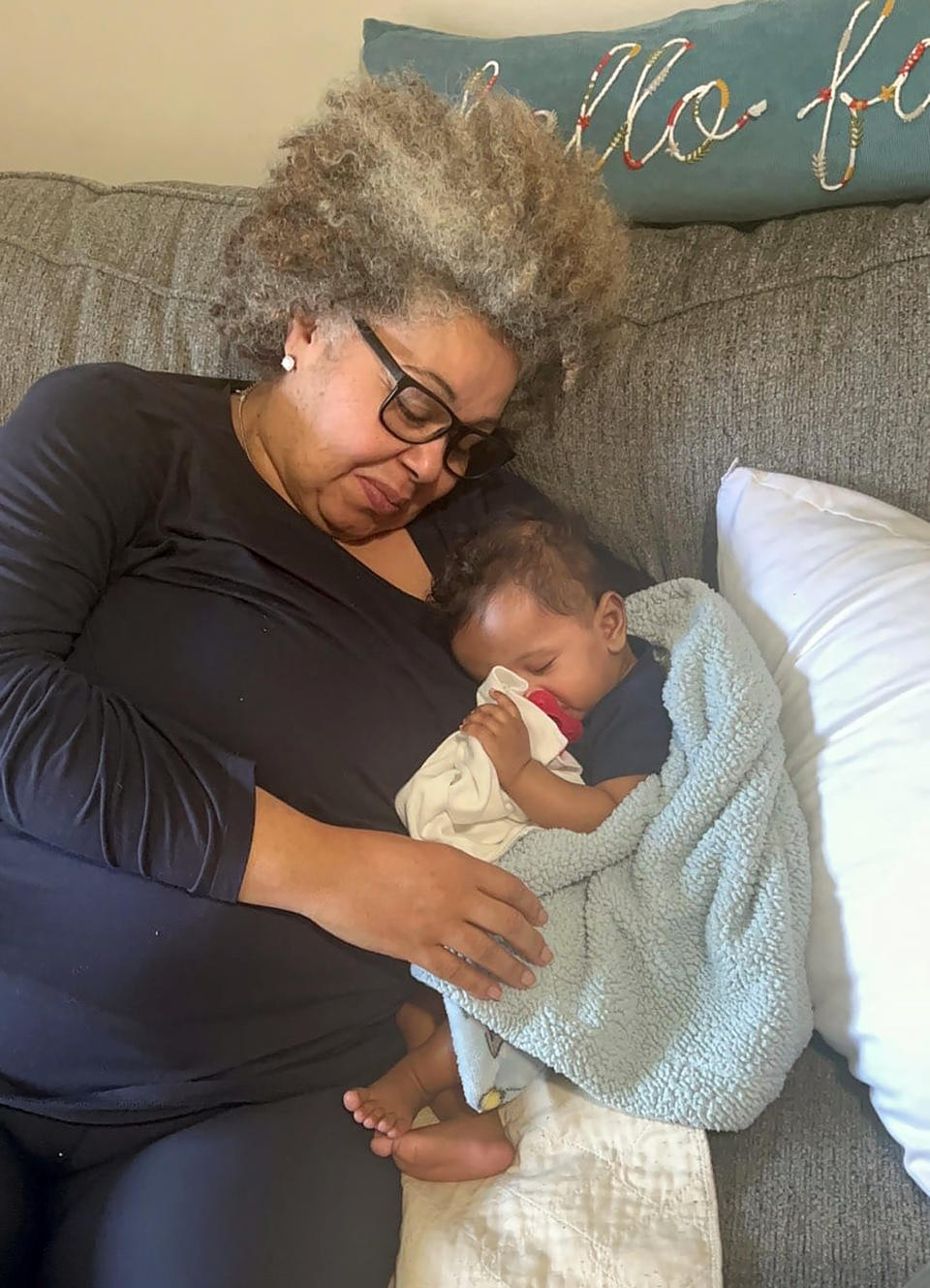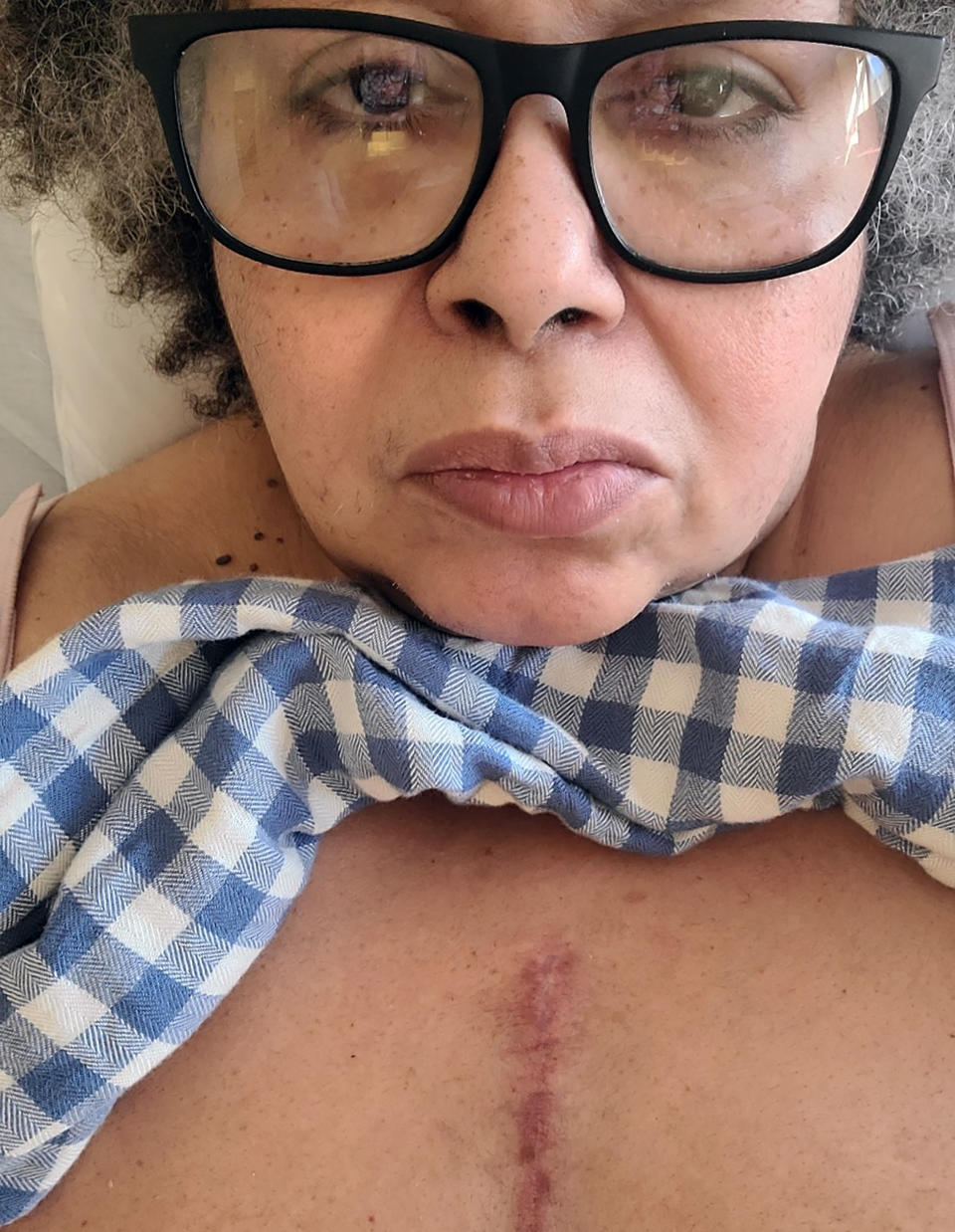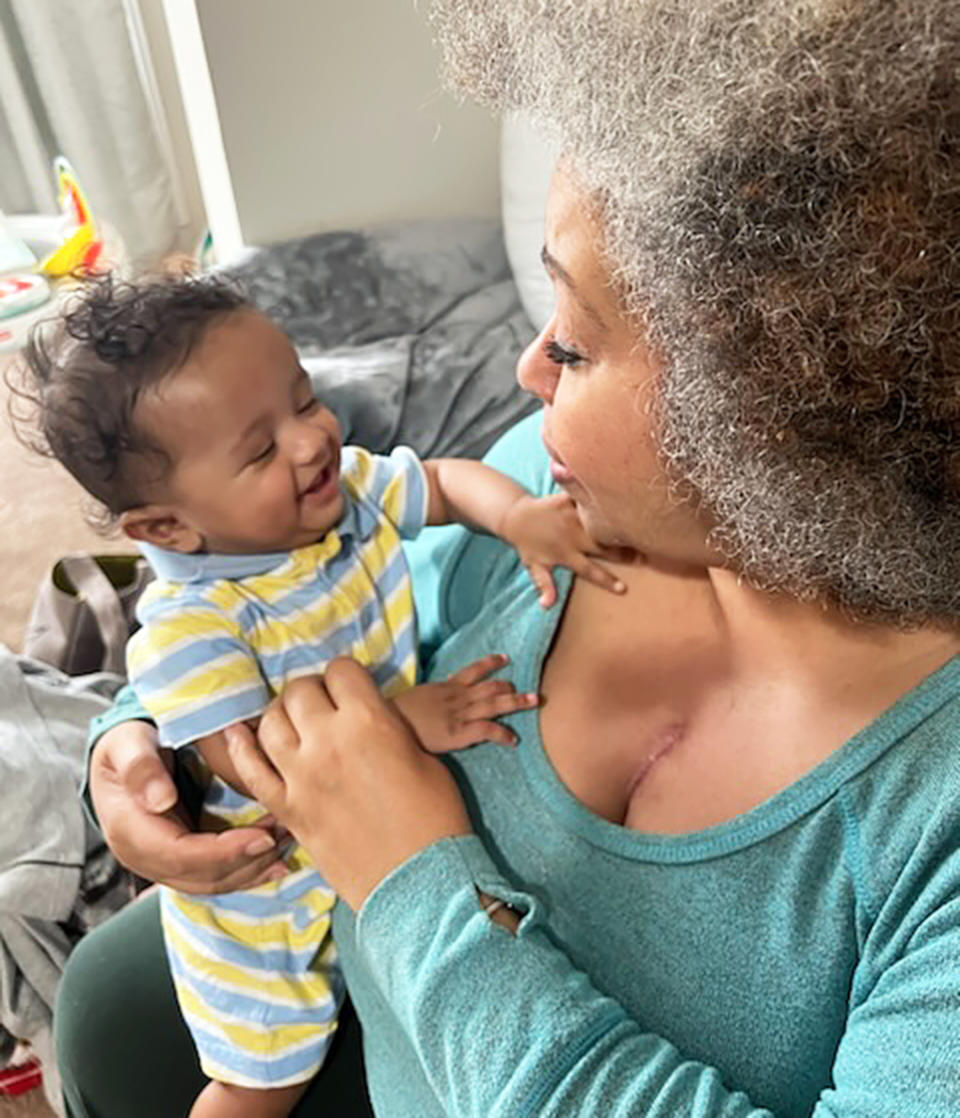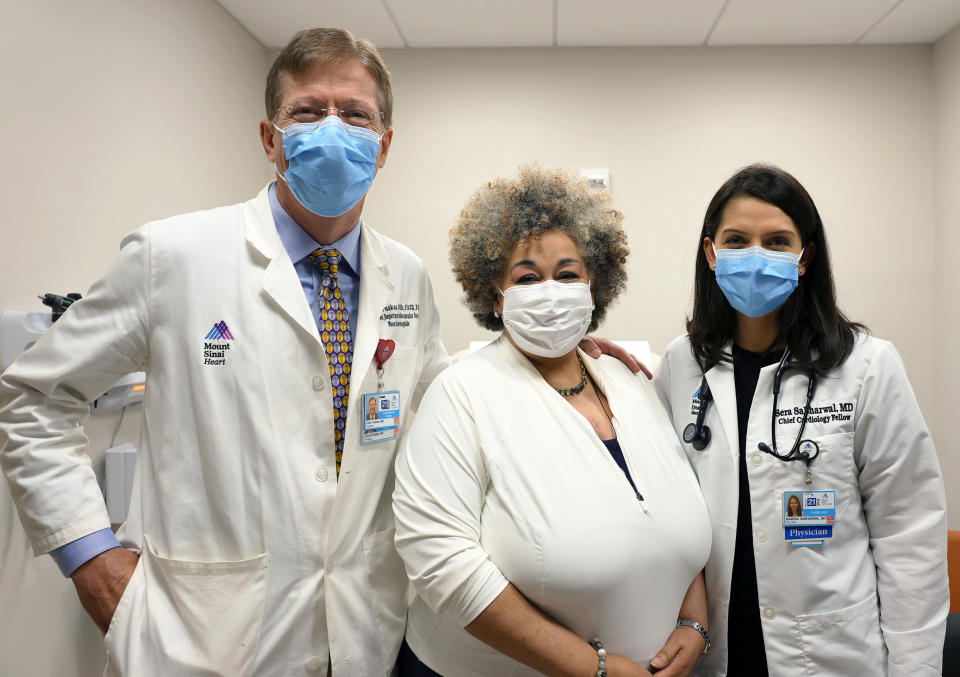Woman Shares Signs of Stroke From Uncontrolled Diabetes, Lack of Insulin
In 2020, Yvelisse Boucher experienced numbness in her arm and leg and thought maybe she pinched a nerve or slept on her side wrong. At the time, she didn’t have health insurance so she didn’t seek treatment. Months later, when she had health insurance, she learned that the numbness wasn’t a pinched nerve or from a bad night of sleep — she had experienced stroke after running out of insulin to treat her Type 2 diabetes. She was stunned.

“I thought it was my neuropathy,” Boucher, 60, of New York City told TODAY. “Because I didn’t have any pain or any kind of symptoms I never really thought about it.” After she established care, she learned she needed to have coronary bypass surgery because several arteries were blocked. The new grandmother is sharing her story to encourage others not to ignore their health.
“Get the yearly check ups,” she said. "Do not put it aside because you’re not promised tomorrow."
Search for doctors uncovers heart conditions
When Boucher received new health insurance coverage, she established care with all new doctors. As a person with Type 2 diabetes, she knew it was important to have an endocrinologist to manage it properly — and she also wanted to visit an eye doctor. She worried that going months without insulin could have damaged her retinas. Her endocrinologist suggested Boucher meet with a cardiologist, and that’s when she realized her heath was even worse than she understood.
“We started off with a series of tests and scans and EKGs. The next thing I know I had an angioplasty,” Boucher said. “They found I had three blockages. I did not know I was walking around with a bad ticker.”
Boucher didn’t experience any pain or shortness of breath. After listening to her history, her cardiologist, Dr. Basera Sabharwal, cardiology fellow at Mount Sinai Morningside, had requested tests to better understand Boucher's health.
“I realized that some of her symptoms were concerning for stroke as well as heart disease,” Sabharwal told TODAY. “I sent her to neurology — she did have a stroke. I did some scans for her here and we found that three or four vessels were blocked.”
Sabharwal said she first became concerned when Boucher mentioned the numbness and weakness on one side of her body.
“(It) was going on for a couple months so that was concerning especially because her diabetes was also not well controlled,” she explained. “With uncontrolled diabetes, you’re at risk for other diseases that you call cardiovascular, meaning heart problems, strokes, blood vessels affecting the extremities, including your legs, blood vessels affecting your kidneys, blood vessels affecting your eyes.”

After discovering the blockages, Boucher visited with Dr. John Puskas, chair of cardiovascular surgery at Mount Sinai Morningside, about her options. She could lose weight and see if that changed her heart health, or she could undergo bypass surgery. While Boucher thought the bypass surgery would help her more, she still felt afraid to undergo a procedure as significant as that.
“I had such anxiety about having the surgery,” Boucher said. “I expected the worst with the scar, and I thought I was going to be mutilated for life … I didn’t want to look ugly.”
Around the same time, her son had shared that he and his wife were expecting a baby boy and the thought of becoming a grandmother made her realize the importance of undergoing the bypass surgery.
“I’m blessed to have my family alive but (there) was something about this little guy,” Boucher recalled. “He gave me so much strength.”
She knew she needed to be healthy to be around for her grandson and she also wanted to be strong enough to be able to hold him. Since her stroke, Boucher couldn’t even hold a cup in her left hand because she was worried she would drop it. To avoid causing another stroke, Puskas performs a type of surgery where he doesn’t stop the heart to perform the bypass. It’s safer for the patient, but tricky for the surgeon, he said.
“The bypass was one way that really mitigated against the risk of causing another stroke, which was one of our key goals. Her operation was done with what we can a ‘no aortic touch procedure,’ meaning we did not clamp the aorta or cannulate the aorta or manipulate the aorta in any way,” Puskas told TODAY. “Her surgery was done without the heart lung machine.”

While doctors often use veins to replace blocked arteries, Puskas uses arteries. They’re more robust and can handle the high blood pressure better, he said.
“We know that vein grafts don’t last as long as artery grafts,” he said.
This surgery was safer for Boucher. “You monitor risk factors for her to try to avoid any significant complications,” Puskas said. “We were happy to achieve that.”
Meeting her grandson
Boucher spent 10 days in the hospital and then went to an in-patient facility for rehabilitation for two months. Recently, Boucher spent two weeks with her new grandson, Ezra. While she was excited to spend time with him, she realized she still needs to heal.
“I thought I’d be a little bit stronger to be able to handle him and that is where I have to still have patience with myself,” she said. “I’m learning to be patient with myself, with my recovery, not to try and force it on things that I’ve wanted to do.”

She felt thrilled by the opportunity to get to know Ezra.
“He smiles when he sees me. He stared at me at first for the longest time,” she said. “He was trying to mimic me, sticking his tongue out like he was just a little stinker.”
Boucher hopes that others learn from her lesson and keep up with their health screen and appointments. She doesn’t want anyone else to experience what she went through.
“A full head-to-toe exam is necessary,” she said.
She encourages others to be brave even when it feels difficult.
“I tell people to find their inner warrior because we never know how strong you are,” she said. “You can’t just stop … You’ve got to go through the whole experience, and we find our strength.”
This article was originally published on TODAY.com

